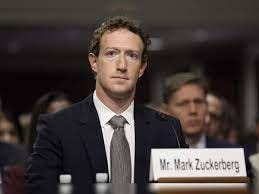This week on the podcast:
Maj. Gen. Gregg Martin, USA Ret., aka The Bipolar General
During a decades long career in the United States Army, Gregg Martin just kept on succeeding. Star cadet at West Point, getting promoted up to two-start General, earning PhD degrees along the way, and receiving glowing evaluations all the while for his boundless energy and enthusiasm. He now knows that he was operating under a condition called hyperthymia, being in a constant state of near mania. After a deployment to Iraq, Gregg’s mania kicked into high gear and was accompanied by bouts of deep depression. It would take many years of further promotion and misdiagnosis before Gregg’s behavior became so erratic that his life fell apart and his bipolar disorder was finally identified. Then he had to figure out how to get better. He tells his story in this interview and in his book Bipolar General: My Forever War with Mental Illness.
A link between covid infections and mental health
As explained in Psychology Today, yep there appears to be a connection, at least according to a recent study.
To look at depression rates, the researchers combined the data from 143 studies with more than 7.7 million participants with long COVID. They found that 23 percent of participants experienced depression, compared with approximately 4 percent of the general population at any given time.
For anxiety, researchers combined the data from 132 studies with more than 9.3 million participants with long COVID and found 23 percent reported symptoms of anxiety. Comparatively, about 4 percent of the general population experiences an anxiety disorder at any given time.
This newsletter is free. But it does take time and effort to provide the world with the newsletter and the Depresh Mode podcast.
If you’ve already donated, thank you. If not, go here, pick a level that works for you, then select DEPRESH MODE from the list of shows. And thank you.
I can talk to you if you want me to
One of my favorite things to do in the world is travel places to give speeches. I have spoken to community groups, corporations, schools, and just about everywhere else. A fun run, once. Another time at the Carter Center in Atlanta. I give speeches about mental health and wellness, delayed covid trauma, the optimism I have for fighting mental health stigma, and more. The speeches are well-received, judging from the rave feedback I’ve been receiving. Perhaps you would like me to come talk to your group? It’s easy to arrange! Just visit Collective Speakers and get in touch with my friends there.
Zuckerberg says there’s social media isn’t damaging to mental health
But the head of the American Psychological Association says yeah it is.
The APA advisory, which was based on the best available science, showed that social media is related to psychological harm through online discrimination, prejudice, hate and cyberbullying. Research also has found that young people face serious risks when they are exposed to content about self-harm, harm to others or eating disorders. But what is key to know is that the advisory also outlined the science behind why certain features, functions and content on social media can be harmful to young people, whose brains have not yet fully developed.
The potential for harm is baked into Facebook, Instagram and other social media platforms if young people use them as intended. Counts of followers or likes exploit children’s innate desire for social reward and their need to feel accepted by their peers. The endless scroll of posts challenges children’s ability to limit their social media use and time spent on screens before brain development in neural inhibition centers have fully developed. Friending and direct messaging functions may expose minors to predators. Research also shows that ongoing engagement on social media platforms are the primary cause of youths’ sleep deprivation, which has substantial consequences for adolescents’ mood, academic performance, and even the size and function of their developing brains.
On Sleeping with Celebrities: John-Luke Roberts
John-Luke Roberts is a comedian, actor, and podcast maker and he’s from England so you know his voice is going to be pleasant to hear. John-Luke created and hosts Sound Heap, a very funny podcast about a podcast network taking on the daunting task of making too many podcasts. Sound Heap is joining the Maximum Fun family this month and to celebrate this fact, John-Luke stops by our show to talk at great length and with tremendous knowledge about pigeons. His British voice will soothe you off to sleep, much like the coo of a pigeon but without all that mess. You will learn about how pigeons were once domesticated, then became de-domesticated, and now they’d like to come back into your house.




